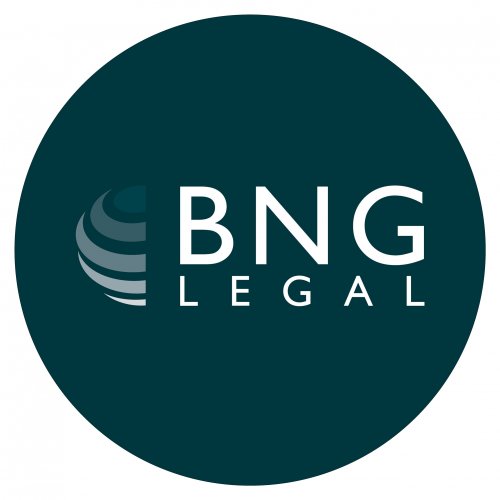Best Investment Lawyers in Cambodia
Share your needs with us, get contacted by law firms.
Free. Takes 2 min.
Or refine your search by selecting a city:
List of the best lawyers in Cambodia
About Investment Law in Cambodia
The Kingdom of Cambodia has become a promising hub for various kinds of investments over the years, owing to its open-market economic policy and a comparatively stable political climate. Since the establishment of the Law on Investment (LOI) in 1994, and the subsequent amendments of 2003 and 2019, Cambodia has worked to unify and simplify its investment processes, providing enhanced protection and incentives for investors.
Despite increased levels of foreign investment in the country, it is important to meticulously comprehend and navigate Cambodia's investment laws, rules, and regualtions, as they can be complex and multifaceted.
Why You May Need a Lawyer
The process of investing in Cambodia can be intricate due to its complex legal framework. From understanding the rules and regulations, tax conditions and incentives, to comprehending land law, business structures and contract negotiations, the understanding and expertise of a competent lawyer can prove invaluable.
Lawyers specialized in Cambodian investment law can help to manage risks by evaluating contracts, highlighting potential legal issues and ensuring your rights as an investor are protected.
Local Laws Overview
The main laws concerning investment in Cambodia include the Law on Investment (LOI), the Law on Commercial Rules and Register, the Law on Commercial Enterprise and the Cambodian Labor Law. The current LOI provides notable tax incentives and protections for investors and their businesses.
Furthermore, the Cambodian Constitution, while promoting foreign investment, limits land ownership to Cambodian nationals. Foreign investors, however, can lease land for a period of up to 50 years, an agreement which can be renewed.
Understanding these local laws is paramount for ensuring a successful investment in Cambodia.
Frequently Asked Questions
1. What are the key investment sectors in Cambodia?
Key sectors include the garment and footwear industry, tourism, agricultural business, construction and real estate, and the booming information technology sector.
2. Can foreign investors own land in Cambodia?
No, according to the 1993 Cambodian Constitution and the 2001 Land Law, foreign investors are prohibited from owning land. However, long-term leases, up to 50 years, are available to foreigners.
3. How does the Government of Cambodia encourage foreign investment?
Through its investment laws, Cambodia provides significant tax incentives, protection from expropriation and easier business registration and licensing procedures for foreign investors.
4. Is there a minimum capital requirement for investments in Cambodia?
Yes, the Council for the Development of Cambodia (CDC) requires a minimum capital of $50,000 for foreign-owned companies and $100,000 for certain sectors such as trading businesses.
5. Can foreign investors transfer their profits out of Cambodia?
Yes, foreign investors can repatriate their profits out of Cambodia.
6. Is foreign arbitration available if there's a dispute?
Yes, the Arbitration Law of Cambodia provides for the possibility of expedient resolution by recognized international commercial arbitration bodies.
7. Are there any specific investment advantages in special economic zones?
Yes, investments in Special Economic Zones (SEZs) come with certain advantages such as simplified customs procedures and potential tax holidays.
8. Are there any restrictions on foreign investment?
Foreign investment is generally encouraged and accepted in Cambodia. Some exceptions exist in certain businesses listed in the Negative List under the Cambodian Investment Law.
9. What is the official language for business in Cambodia?
The official language for business and legal documents in Cambodia is Khmer, which emphasizes the need for language specialists or translators.
10. How is the taxation for foreign investors in Cambodia?
Taxation depends on the nature of the business and income. Corporate Tax is currently set at a standard 20% on profits, but other taxes and incentives may apply depending on the specifics of the investment.
Additional Resources
The Council for the Development of Cambodia (CDC) is the key government body in charge of foreign and national investment. The Ministry of Commerce oversees the registration of companies and business, while the General Department of Taxation manages tax procedures.
Next Steps
If you need legal assistance with investing in Cambodia, begin by selecting a legal professional with expertise in Cambodian investment law. They can guide you in understanding the local laws and regulations, help navigate tax matters, contract negotiations, business registration, land leasing and more.
You should also reach out to local authorized organizations, such as the CDC, for pre-investment advice, ensuring your proposed project or business aligns with local laws and regulations.
Lawzana helps you find the best lawyers and law firms in Cambodia through a curated and pre-screened list of qualified legal professionals. Our platform offers rankings and detailed profiles of attorneys and law firms, allowing you to compare based on practice areas, including Investment, experience, and client feedback.
Each profile includes a description of the firm's areas of practice, client reviews, team members and partners, year of establishment, spoken languages, office locations, contact information, social media presence, and any published articles or resources. Most firms on our platform speak English and are experienced in both local and international legal matters.
Get a quote from top-rated law firms in Cambodia — quickly, securely, and without unnecessary hassle.
Disclaimer:
The information provided on this page is for general informational purposes only and does not constitute legal advice. While we strive to ensure the accuracy and relevance of the content, legal information may change over time, and interpretations of the law can vary. You should always consult with a qualified legal professional for advice specific to your situation.
We disclaim all liability for actions taken or not taken based on the content of this page. If you believe any information is incorrect or outdated, please contact us, and we will review and update it where appropriate.
Browse investment law firms by city in Cambodia
Refine your search by selecting a city.











